Master of
Business Administration
Our MBA program is designed for the student looking for more purpose and meaning in their work, and a plan to impact the world of business for Christ. This 36-credit accelerated graduate program will connect you with like minded individuals to prepare you for a life of missional work in your calling. A Master of Business Administration from Grace Christian prepares you for Business as Mission, and equips you with the skills needed to achieve success.
Online Graduate Start Dates
September 30, 2025
Refine & Extend Your Calling as You Continue to Make an Eternal Impact
With Grace Christian University’s online master’s degrees, you can further your education no matter where you are. Our online programs are designed to help you become equipped for the Lord’s calling on your life, while working through your classes anytime, anywhere.
Grace’s online master’s degrees offer a high-quality level of education aiming to develop passionate servants of Jesus that emphasize the integration of character transformation, ministry experience, and biblical truth. No matter what track you choose, you’ll graduate with a deeper knowledge of God and His Word, prepared to make an eternal impact wherever you go.
Experience an Education with a biblical foundation
Develop Godly Friendships that will last a lifetime
Feel Confident and Prepared for your ministry career
Learn from instructors who really care
What to Expect
Excellence in Business Administration, Grounded in Faith
At Grace, our curriculum goes beyond conventional education, weaving biblical principles into every facet of learning. We aim to develop passionate servants of Jesus that emphasize the integration of character transformation, ministry experience, and biblical truth.
2025–26 Tuition Cost
An Affordable MBA Degree
Explore the pathway to an affordable yet exceptional MBA degree. With a range of financial aid options and competitive tuition rates, we’re dedicated to ensuring that every student has the opportunity to excel in the pursuit of their calling without the burden of overwhelming student debt.
$520
2025-26 Master Degree Tuition Cost Per Credit Hour
$250
Master Degree Tuition Cost Per Credit Hour
Military Personnel (active duty, veterans, spouses, dependents 23 or under)
$0
Online Application Fee
(Wavied for Adults Students)
$150
Online Resource Fee per 3-Credit Course
(Covers all textbooks and other resources required for Grace Online students)
20
Months*
36
Credit Hours
6
Week Courses
* Taking one six-week, three-credit course at a time on a year-round rotation, students typically complete 6 courses per year. Depending on the student’s transfer credit status, completing a Master’s degree generally takes less than two years.
Career Paths
MBA Career Paths
MBA students will be equipped with a versatile skill set that opens doors to a variety of career opportunities. Whether you’re drawn to finance, human resource management, logistics or beyond, the possibilities are vast.
Here are just a few examples of the diverse paths our alumni have pursued after completing their studies:
- Banking and Finance
- Venture Capitalist or investor
- Product and Brand Manager
- Marketing Research and Marketing management
- Operations Management and Logistics
- Human Resources Manager
- Entrepreneur
Benefits of Our Online Master Programs
Students in the online master’s degree programs:
- Attend classes on a flexible schedule that allows for work and family responsibilities
- Expand career and ministry opportunities with a degree that opens doors
- Obtain an affordable, high-quality education
- Gain collaboration skills through working with classmates and professors
- Achieve an educational goal
Course Descriptions
MBA Courses
Our MBA program develops business leaders grounded in biblical values and Christian ethics. The curriculum integrates advanced business concepts with a Christ-centered worldview, covering functional areas like accounting, finance, and strategic management through the lens of ethical decision-making and stewardship. Graduates are equipped as servant leaders prepared to honor God through business excellence and transformative workplace impact.
The Master of Business Administration is a fully online, 36-credit graduate degree designed to equip leaders with the knowledge and skills necessary for effective, ethical and innovative leadership in Organizations from any industry. Students will study cultural intelligence, leadership theory, and trends in business from a biblical worldview while gaining practical knowledge and professional expertise in leadership theory, marketplace evangelism strategies, financial stewardship and Strategic Direction. Graduates from this program will be prepared to serve Christ in leadership roles in a variety of business operations.
Required Texts
GEN 501 – Graduate Writing and Research
- Burns, J. S., Shoup, J. R., & Simmons Jr., D. C. (2014). Organizational leadership: Foundations and practices for Christians. InterVarsity Press. 978-0830840502 (accessible via Perlego)
- Neumann, J. W. (2016). A professor’s guide to writing essays: The no-nonsense plan for better writing (2nd ed.). Edinburg, TX: Self-Published. 978-0692822524
- Williams, V. K. (2016). I’m not a writer…I’m just in graduate school: A guide to writing critically, clearly and coherently. Tampa, FL: Chrysalis Consulting. 978-1533392916
LEA 505 – Organizational Ethics
- Johnson, C.E. (2021). Meeting the ethical challenges of leadership: Casting light or shadow. (7th ed.). Sage. 978-1544351643
LEA 530 – Foundations of Organizational Leadership
- Northouse, P. (2021). Leadership: Theory and practice (9th ed.). Sage. ISBN 978-1544397566
LEA 540 – Organizational Behavior
- Burns, John S., Shoup, John R., and Simmons, Donald C. (2014). Organizational leadership: Foundations and practices for Christians. IVP Academic. 9780830840502 (accessible via Perlego)
- Kotter, J. (2012). Leading change. Harvard Business Review Press. 9781422186435
LEA 545 – Leading with Cultural Intelligence
- Livermore, D. (2015). Leading with cultural Intelligence. AMACOM Publishing. 9780814449172 (accessible via Perlego)
- Elmer, D. (2002). Cross-Cultural connections: Stepping out and fitting in around the world. InterVarsity Press. 9780830823093 (accessible via Perlego)
CAP 595 – Graduate Studies Capstone
- Blanchard, K., Hodges. P., & Hendry, P. (2016). Lead like Jesus revisited: Lessons from the greatest role model of all time. Thomas Nelson. 978-0718077259
Open Resource Courses– the following courses utilize resources that are open source and embedded directly in Blackboard; course materials will not be fulfilled:
BUS 515 – Financial Stewardship
BUS 525 – Global and Economic Theory
BUS 535 – Social Entrepreneurship
BUS 555 – Financial Analysis for Managers
BUS 575 – Business as Calling
BUS 585 – Marketing Management
Master of Business Administration
Our MBA program develops business leaders grounded in biblical values and Christian ethics. The curriculum integrates advanced business concepts with a Christ-centered worldview, covering functional areas like accounting, finance, and strategic management through the lens of ethical decision-making and stewardship. Graduates are equipped as servant leaders prepared to honor God through business excellence and transformative workplace impact.
Graduate Writing and Research
GEN 501LDesigned to give students the skills they need to complete successful written projects and research in graduate-level courses within the context of a biblical worldview. Students who pass this course will demonstrate proficiency in critical thinking, expressed through solid research and clear writing, which serves as the foundation for further studies in the University’s graduate programs. Includes research tools and methods for scholarly research. (Available only to students in the 4+1 program. The successful completion of GEN 501L is considered a prerequisite for all other graduate courses.) |
3Credit Hours |
Organizational Ethics
LEA 505An analysis of the foundation of ethical behavior in business, including an introduction to social graces and the importance of professional image. Emphasis is placed on a comparison between Judeo-Christian and secular ethical paradigms, as well as the social responsibility of organizations to contribute to the common good. (Available only to students in the 4+1 program.) |
3Credit Hours |
Financial Stewardship
BUS 515Introduces the principles of financial management. Students will review basic concepts of financial management, financial analysis and control, capital investment decisions, cost of capital, sources of long-term funds and cash management principles, accounting, review of basic organizational financial statements, ratio analysis, debt and equity securities, security valuation, and Time Value of Money. It is a study of the fundamentals of corporate finance as they relate to non- financial managers. (Available only to students in the 4+1 program.) |
3Credit Hours |
Global and Economic Theory
BUS 525Provides students with an understanding of the current global economic environment. Students will discuss international trade theory and strategy, free markets and customer choice. Students will engage in discussions about capitalism, socialism, and communism. Students will evaluate the economic landscape of a foreign country and create a plan to use business as a tool for aiding in economic development. (Available only to students in the 4+1 program.) |
3Credit Hours |
Foundations of Organizational Leadership
LEA 530An examination of leadership theories in order to develop an effective foundation for leading self, and organizations. Theories to be studied include: Trait Approach, Skills Approach, Behavioral Approach, Situational Approach, and Leader-Member Exchange Theory. Other theories such as Transformational Leadership, Authentic Leadership, Servant Leadership, Adaptive Leadership, and Followership, will be included. Organizational learning concepts and case studies will be analyzed; And lastly, students will have the opportunity to participate in leadership questionnaires, to explore their personal leadership style, and to develop a personal, and organizational, leadership philosophy. (Available only to students in the 4+1 program.) |
3Credit Hours |
Social Entrepreneurship
BUS 535Introduces the complex relationship business, community development and faith. Students will explore the unique ways business can impact community development and human flourishing. Students will create a business plan that focuses on the quadruple bottom line: people, profit, planet, and progress. (Available only to students in the 4+1 program.) |
3Credit Hours |
Organizational Behavior
LEA 540Organizational Behavior is the study of the behavior of individuals, teams, and organizations, within for profit and nonprofit arenas, which is based on current management and leadership theory. Emphasis is given to understanding, predicting, motivating, and changing work-related behaviors in organizations, as well as encouraging effective behaviors that help the individual, team, and the organization to flourish. Key topics include: managerial and leadership careers related to students’ work and calling, decision making, organizational change, leading and mentoring teams, conflict and negotiation, and cultural intelligence. (Available only to students in the 4+1 program.) |
3Credit Hours |
Leading with Cultural Intelligence
LEA 545Cultural Intelligence (CQ) is the capability to function effectively in a variety of cultural contexts. Students will examine literature and perspectives from the fields of anthropology, sociology, and organizational leadership as well as study cultural engagement in light of the biblical narrative. (Available only to students in the 4+1 program.) |
3Credit Hours |
Financial Analysis for Managers
BUS 555An in-depth look at the creation of, and analysis of financial statements. Students will evaluate the financial information from businesses in various sectors of the economy. Financial concepts of stocks, bonds and the time value of money will be discussed from the role of a manager. Various software solutions will be discussed that are relevant to each industry. (Available only to students in the 4+1 program.) |
3Credit Hours |
Business as a Calling
BUS 575Provides students with a framework for understanding the theology of work. Students will explore their natural giftings and motivations for business success. Students will create a comprehensive plan to understand the impact their business can have for introducing others to Jesus Christ. (Available only to students in the 4+1 program.) |
3Credit Hours |
Marketing Management
BUS 585A hands-on approach to marketing. Students will engage in exposure to various marketing software solutions. There is a focus on marketing techniques across various digital media platforms. Students will create a comprehensive campaign for the business of their choosing exploring the various components that make up a complex marketing strategy. (Available only to students in the 4+1 program.) |
3Credit Hours |
Choose One
Graduate Capstone
CAP 595The Graduate Capstone is a six-week course with assignments that include discussions and reflections on the scope of the student’s discipline, reviews of recent literature on leadership, and the creation of a final essay of 10 pages in which students write about guiding principles such as life purpose, core values, goals, and vision, as well as identifying key principles of leadership gleaned throughout their courses of study they plan to apply in the future. Prerequisite: Completion of all degree requirements with a minimum cumulative GPA of 3.00. |
3Credit Hours |
Graduate Capstone Experience
CAP 596The Graduate Capstone Experience is a six-week course that is built on the foundation of a hands- on experience in the student’s chosen discipline. The experience will reflect the scope of the degree studies, reviews of recent literature on the topic, and will demonstrate an area of the student’s specific passion in the discipline. The experience will be described in a final essay of 20 pages in which the student describes the experience in detail and how the understanding gained through the experience will be applied in future work and ministry. Prerequisite: Completion of all degree requirements with a minimum cumulative GPA of 3.00 and approval of the Provost or designee. |
3Credit Hours |
Graduate Capstone Thesis
CAP 597The Capstone Thesis is a 12-week course that highlights the student’s independent scholarship in investigating and developing a chosen topic, integrating a biblical worldview and theoretical base with a comprehensive literature review. Students will work directly with a faculty thesis advisor to produce a 40 – 80 page scholarly work. Prerequisite: Completion of all degree requirements with a minimum cumulative GPA of 3.00 and approval of the Provost or designee. |
3Credit Hours |
Testimonials
What Our Students Are Saying
We believe education is more than just academics. Check out firsthand accounts from students like you who have been impacted by our vibrant community, transformative education, and unwavering commitment to faith.




Frequently Asked Questions
Who is the Master's Program for?
Anyone who has completed a Bachelor's degree and is seeking quality Christian Higher Education. We offer tuition discounts for military personnel, alumni scholarships, and payment plans for cash paying students. Our program is excellent for those receiving tuition reimbursement from an employer as well as anyone seeking to utilize Federal Financial Aid.
What is the Grace Christian Difference?
Academic Rigor
The program will teach and develop graduate-level research, writing, critical thinking, leadership and communication skills. Beginning with the Program Seminar, the program is designed to acclimate students to graduate-level work and prepare them for the kind of reading, writing, and thinking skills they will need for the remainder of the program.
Student-Centered
The application of constructivist learning theory puts the responsibility of learning in the hands of the students. Whenever possible, students will be allowed to choose what they will learn, how they will learn, and how they will assess their learning in terms of their ministry and professional goals.
Best Practices
As a fully online program, Graduate Studies at Grace Christian University adheres to the best practices of online education, including, but not limited to: online presence, creating a supportive online community, a variety of individual, small group, and large group learning experiences, and clear communication in the online environment.
What Can I Expect from the Professors of this Program?
Your professors have first hand knowledge working in their areas of instruction, along with advanced degrees and higher education experience. They are eager not just to instruct, but to guide you on your faith journey and pray for you throughout your time here. Their desire is to help you succeed and equip you for where God has called you.
What are the Benefits of the Program?
Students in the Online Master's programs will be able to:
- Complete a Master's degree in as few as 20 months
- Attend class asynchronously online and minimize interference from work schedules and family responsibilities
- Improve writing skills through our university Writing Center at our virtual Academic Center for Excellence.
- Enhance virtual presentation and technology skills to maximize ministry effectiveness and/or leadership skills
- Meet in a collaborative format and benefit from the varied experiences and ideas of classmates
- Obtain a degree that opens a wide range of opportunities, including pursuing doctoral studies
- Attend small virtual classes with the same students, developing teamwork skills and mutual support
- Receive individualized instruction and specific attention
- Gain satisfaction by fulfilling an educational goal
What Flexibility Does the Master’s Program Offer?
One course at a time, on your own time, in as little as 20 months. Students may enroll full-time or part-time and complete their coursework throughout the week at a time of day that is convenient for them.
Why Should I Study Online at Grace?
Advance your career from the comfort of your own home.
Our online master’s degrees are designed for busy professionals who desire to advance their careers. Through our flexible classes, our professors will encourage and mentor you as you expand your current pursuits.
Experience a caring community.
Connect with professors and students who will come alongside you as you pursue higher education and growth in Christ. At Grace, we’re passionate about equipping and supporting you to serve the Lord and others in all that God has called you to do.
Strengthen your biblical foundation.
At Grace Christian University, the Word of God is taught, valued, and celebrated. Deepen your knowledge of God’s Word as you receive an education grounded in objective Biblical truth.
The Grace Experience.
As closely as possible, the Graduate Studies program will reproduce the experience of undergraduate students (On Campus and Online) in an authentic Grace Christian University experience, expressing the ethos, core values, and historic mission of the University. This includes the University’s commitment to being a Bible-centered institution, committed to our historic Grace theological position, which values transformative relationships and service to church and society.
What Sets Our Master's Programs Apart?
Our Enrollment Advisors are there for you.
One-on-one coaching through the admissions process and the first class with your assigned Enrollment Advisor. Your advisor will want to know:
- Your passion
- Your path and goals
- Life circumstances that could help or hinder your success
- How can they pray for and with you
Your advisor will take this information seriously and provide tailored care as you get started with your degree.
We Prioritize You
Your goals and giftings are prioritized so they drive your success; this is opposed to a one-size fits all mentality & communication.
We take care of all class registration and your personalized education plan is created when you begin your program, so you are able to see all courses required until your graduate date.
One Class at a Time
No required log-in time (you log in throughout the week when it works best for your schedule!)
Students finish their online degrees in the same period as if they were attending an on-campus program.
Our Professors Care
Staff and faculty care about each student's eternal impact, which influences the care and resources we provide. Professors care and are easily accessible.
Low professor-to-student ratio:
- Online Undergraduate - 9.3 students per course section
- Online Graduate - 7 students per course section
The Bible is Central
All classes are taught from a biblical foundation, regardless of subject, with weekly devotions.
Low Cost Quality Education
Low tuition for a private Christian education.
Take the Next Step
Your Calling to the World Awaits
Join the Grace community and embark on a transformative journey of faith, learning, and personal growth as you pursue your calling in the business field.







